University Childhood Studies Essay: Play-Based Curriculum and EYLF
VerifiedAdded on 2022/09/15
|6
|1450
|22
Essay
AI Summary
This essay provides a comprehensive overview of the author's approach to implementing a play-based curriculum within the framework of early childhood education. It delves into the principles and practices of the National Early Years Learning Framework (EYLF), emphasizing the importance of secure relationships, intentional scaffolding, and engaging children in play. The essay highlights the author's strategies for fostering co-playing skills, adapting educator roles, and challenging children's choices to extend their learning. The author discusses the National Quality Framework (NQF), intentional teaching methods, and the significance of creating a culturally competent and inclusive learning environment. The essay emphasizes the importance of respecting cultural diversity, incorporating play-based learning, and using effective communication techniques to build strong bonds with children. The author stresses the need to provide a safe environment, encourage children to step outside their comfort zones, and offer opportunities for all children to learn at their own pace. The conclusion reinforces the significance of early education and care in shaping children's development and the author's commitment to organizing a play-based curriculum in alignment with the EYLF and NQF standards. The essay also references several scholarly articles and resources to support the author's arguments.
1 out of 6
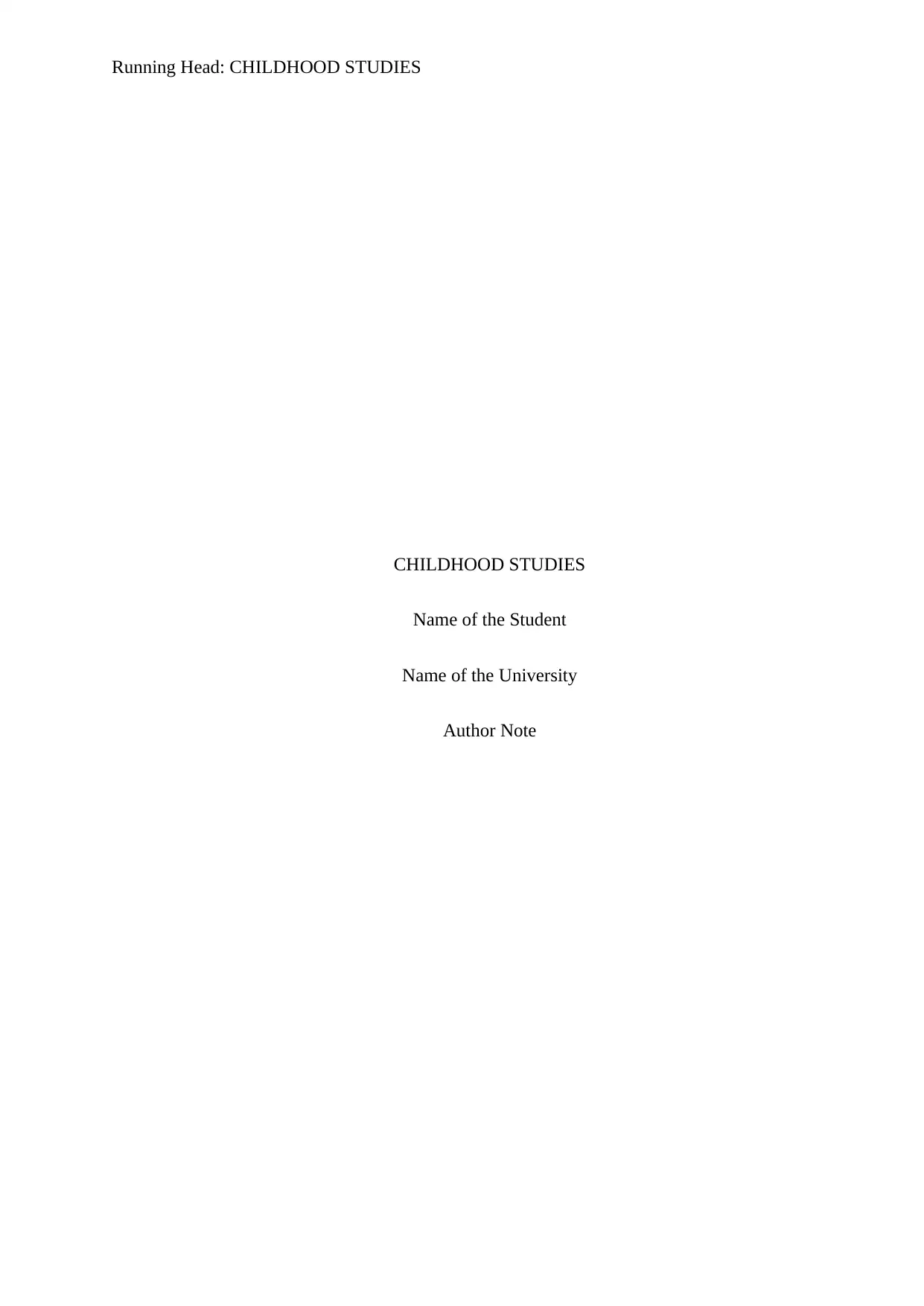
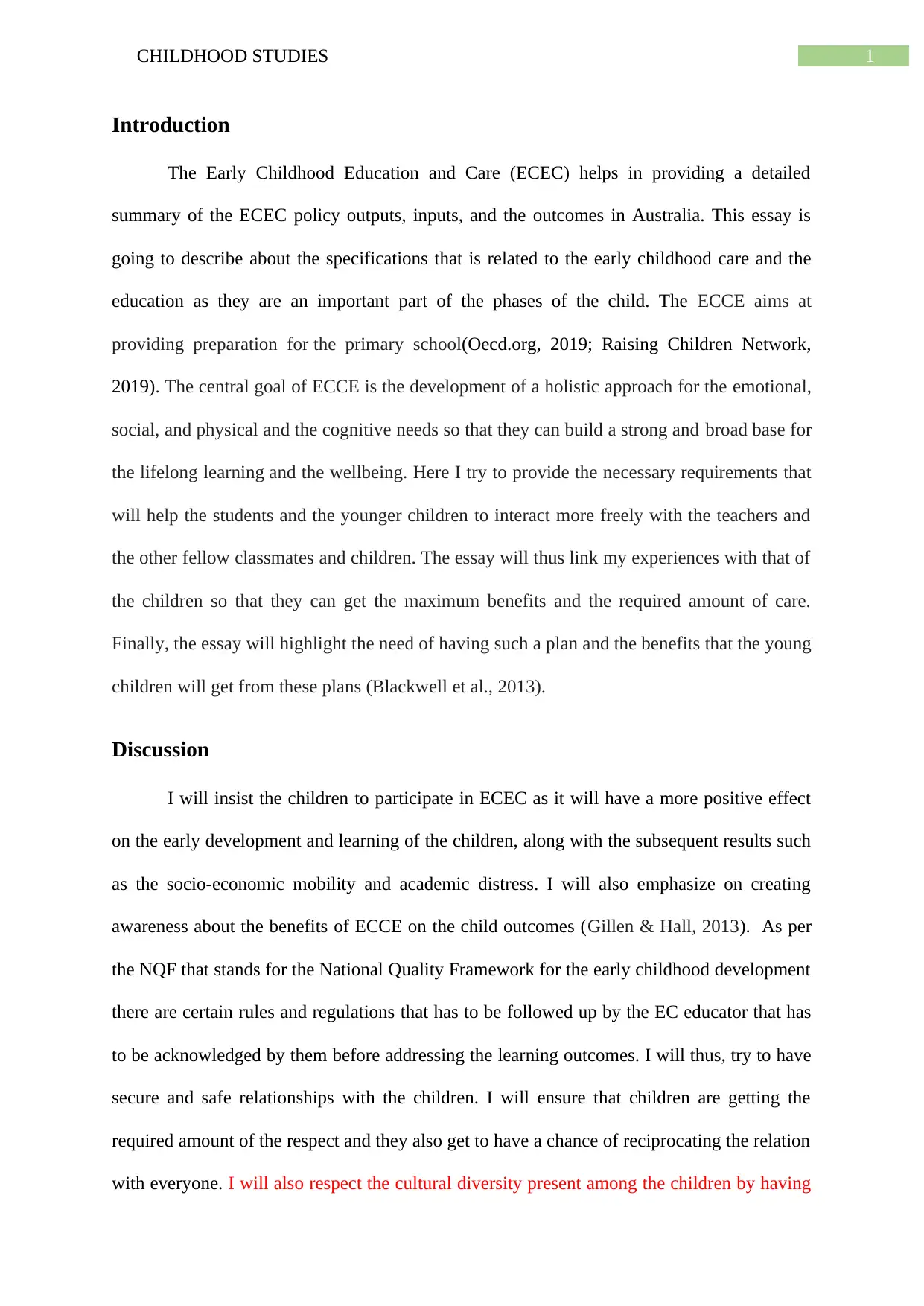
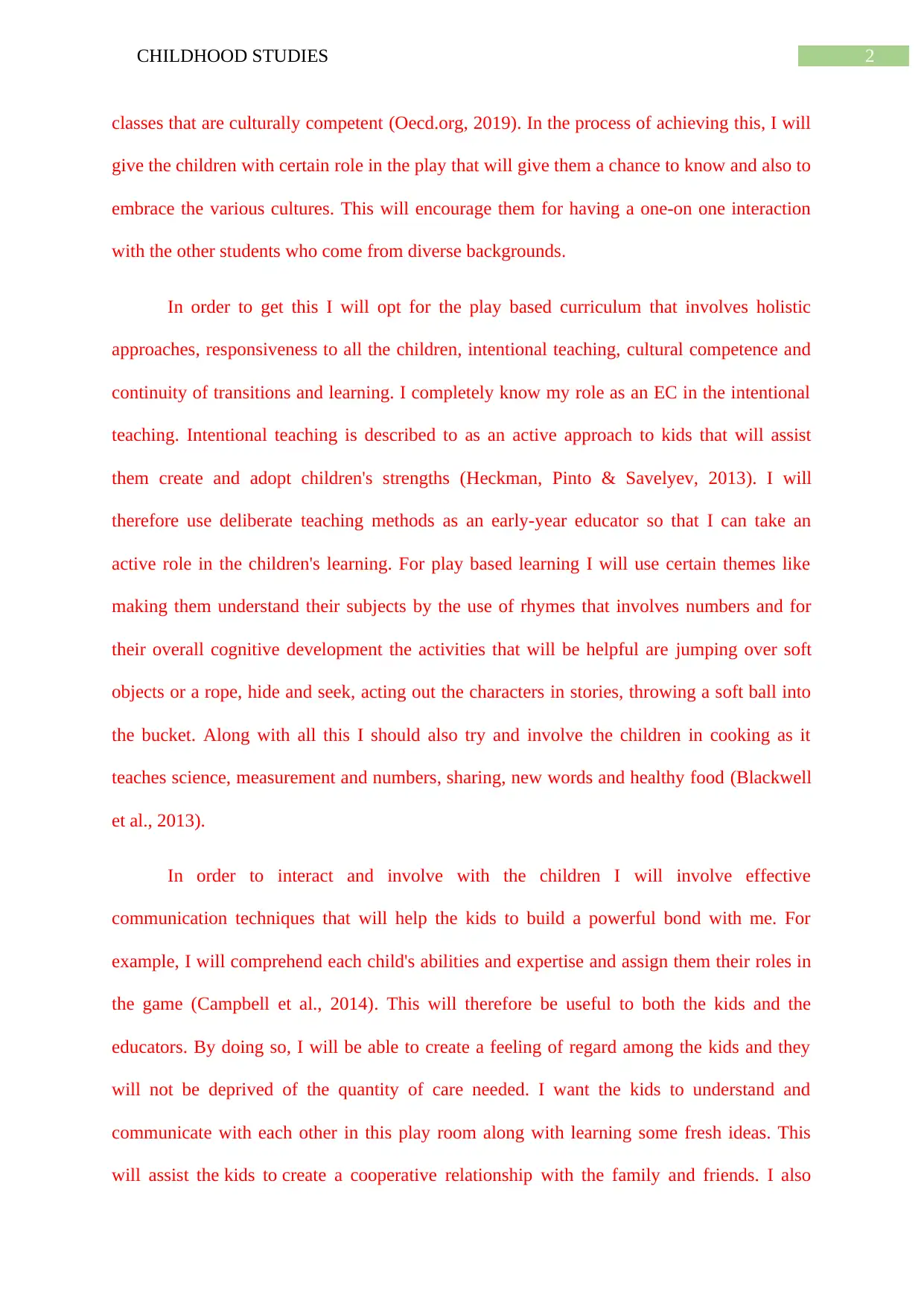

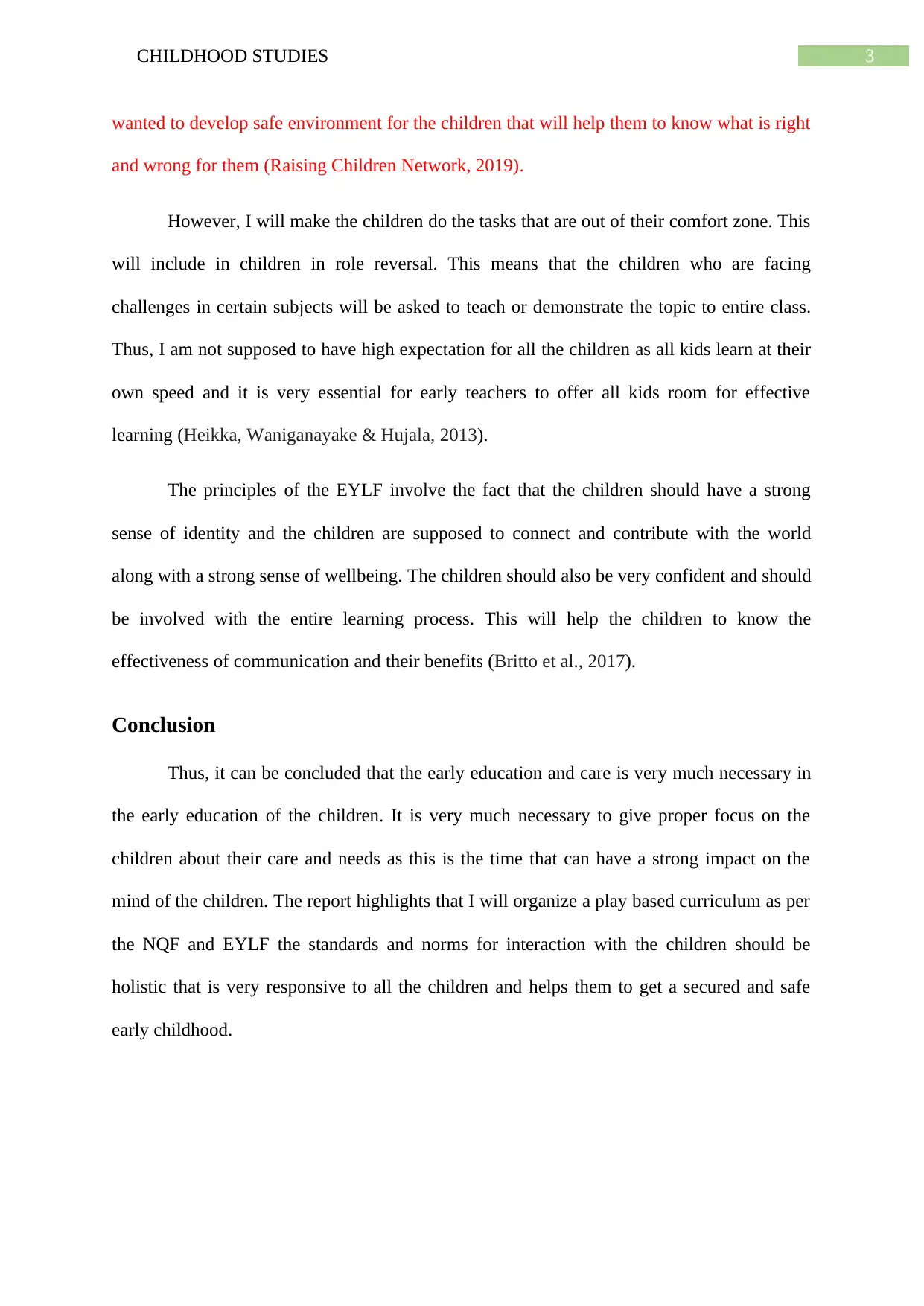
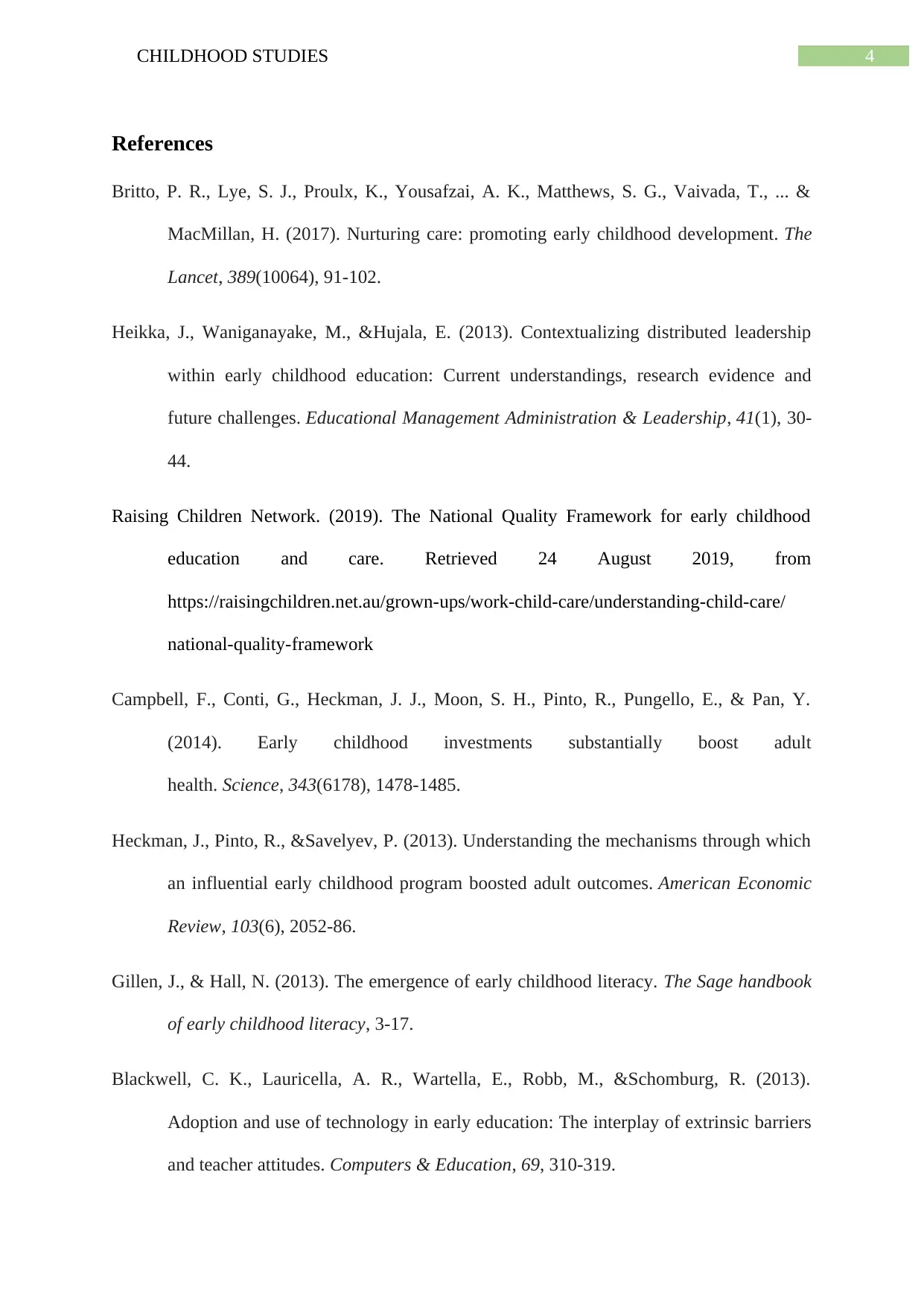
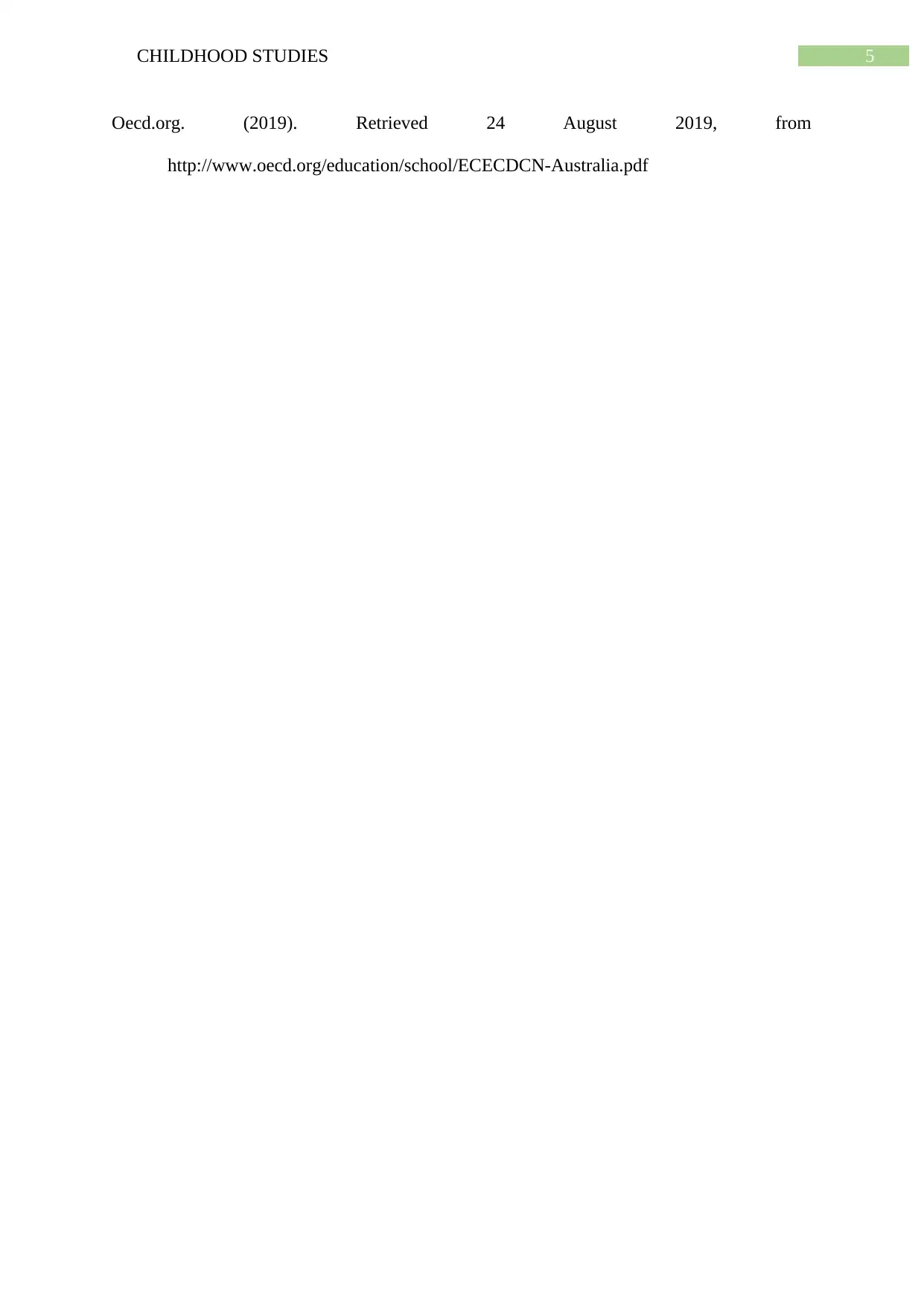




![[object Object]](/_next/static/media/star-bottom.7253800d.svg)